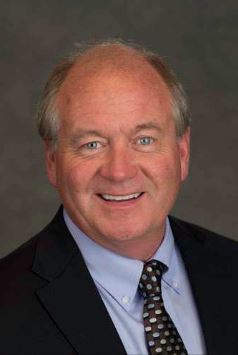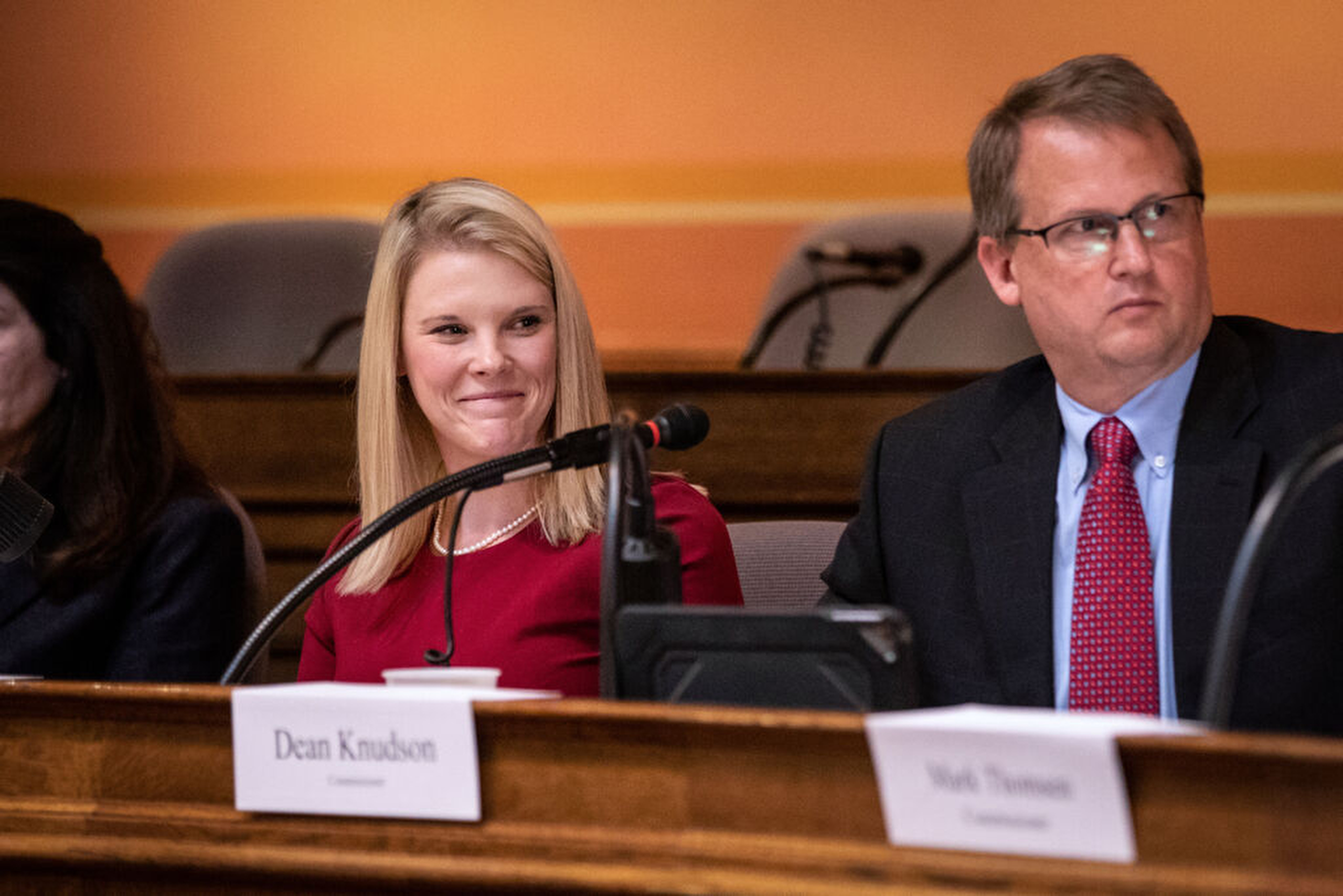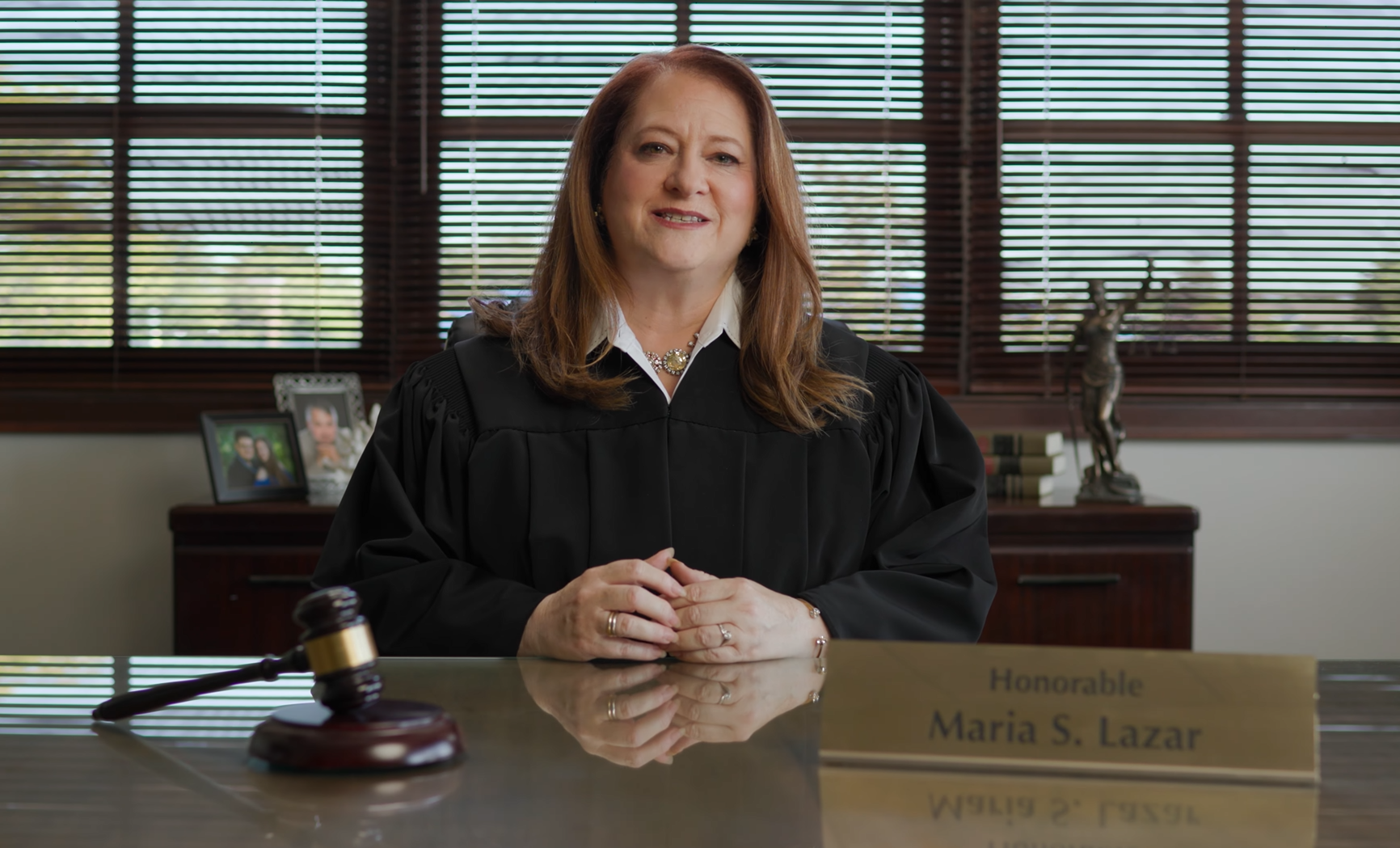Justices on the Wisconsin Supreme Court will hear arguments Monday about whether Wisconsin Elections Commission Administrator Meagan Wolfe can keep her job amid a years-long Republican push to oust her.
The dispute has been driven by conservatives who are angry with the way Wolfe oversaw the 2020 election, when COVID-19 changed the way clerks handled voting, and President-elect Donald Trump cast doubt on his loss to President Joe Biden.
The case is the latest example of an ongoing power struggle over political appointments in Wisconsin. It will test whether the court’s liberal majority still opposes a 2022 decision by the court’s former conservative majority allowing appointees to stay in their positions until someone new is confirmed by the Wisconsin Senate.
In September 2023, Democratic Attorney General Josh Kaul filed a lawsuit following a Senate vote to fire Wolfe after her four-year term as the state’s top elections official expired. Kaul argued the vote had no legal effect because the Supreme Court had recently allowed Fred Prehn, a Republican, to remain on the state Natural Resources Board past his term.
News with a little more humanity
WPR’s “Wisconsin Today” newsletter keeps you connected to the state you love without feeling overwhelmed. No paywall. No agenda. No corporate filter.
In January, a Dane County Judge sided with Kaul and ruled Wolfe was a legal “holdover” appointment. During that case, attorneys representing Wisconsin Senate Majority Leader Devin LeMahieu, R-Oostburg, and other top legislative Republicans, admitted their vote to fire Wolfe was merely symbolic and had no legal impact.
LeMahieu, Assembly Speaker Robin Vos, R-Rochester, and former Wisconsin Senate President Chris Kapenga, R-Pewaukee, appealed the case, which was ultimately taken up by the Supreme Court’s liberal majority in September. While the Prehn ruling looms large, the appeal argues the state law that created the elections commission requires the group to appoint a successor when the administrator’s term expires. Wolfe’s appointment ended nearly 17 months ago.
3 Supreme Court liberals opposed holdover appointments in 2022 ruling
The current case over Wolfe’s appointment represents a sort of political flip with regard to appointees overstaying their terms.
In 2022, Evers called the Prehn decision “wrongheaded,” part of an “erosion of Democratic institutions at the hands of Republicans in this state.” While Kaul is now using the Prehn ruling to defend Wolfe, two years ago he said it allowed an “antidemocratic situation to continue indefinitely.”
What’s yet to be seen is how the court’s current liberal majority will treat the Prehn precedent. In her 2022 dissent, liberal Justice Rebecca Dallet called it “absurd” and claimed it steers state government “directly into disorder and chaos” while threatening the separation of powers between the legislative and executive branch.

Legal experts concerned about politicization of appointment process
Marquette University Law School Professor Kali Murray told WPR one notable difference between the 2022 and 2024 holdover cases is that Republicans never tried to oust Prehn from his NRB position, whereas they did attempt to fire Wolfe.
Murray said there’s an expectation that the Supreme Court’s liberal majority will lean on the previous majority’s Prehn ruling to decide in Democrats’ favor.
“That indicates that the parties view this as primarily a tactical case in which the personnel change in front of the Supreme Court is ultimately going to make the political problem end, and that’s my concern as a lawyer,” Murray said.
Murray said the bigger issue is a breakdown of past norms between the state’s legislative and executive branches.
In addition to Prehn remaining in his position against Evers’ wishes, Republican senators have delayed confirmation votes on dozens of the governor’s political appointments.
Now, Democrats are using arguments they recently opposed to keep Wolfe, a nonpartisan administrator whose appointment they support.
“I think there’s a bit of a knife fight going on right now between executive branch and the legislative branch,” Murray said. “I think Attorney General Kaul and Gov. Evers decided to bring a knife to a knife fight.”
Bryna Godar is a staff attorney with the State Democracy Research Initiative at the University of Wisconsin Law School. She said one of the complicating factors in the Wolfe case is that none of the parties are asking the court to overrule the 2022 decision on holdover appointments.
She said it’s rare “for a court to voluntarily overrule” a prior decision without parties asking justices. Still, Godar said the battle over Wolfe’s appointment wouldn’t be happening if not for the Prehn decision two years ago.
“And so, we’re kind of taking that as a given rule in Wisconsin, and going from there,” Godar said. “And saying, OK then, what does that mean in this situation?”
Godar shared Murray’s concern over the politicization of the appointments in Wisconsin and said she thinks it’s “undermining the democratic nature of the process.”
Wisconsin Public Radio, © Copyright 2026, Board of Regents of the University of Wisconsin System and Wisconsin Educational Communications Board.





